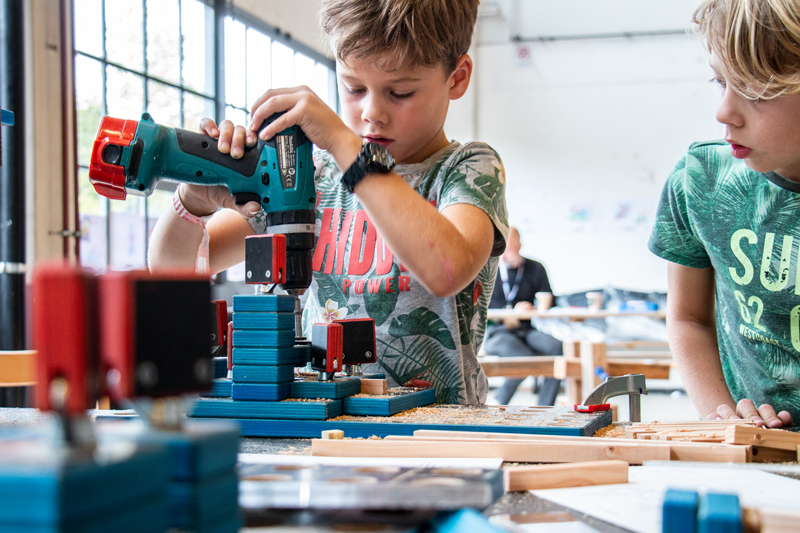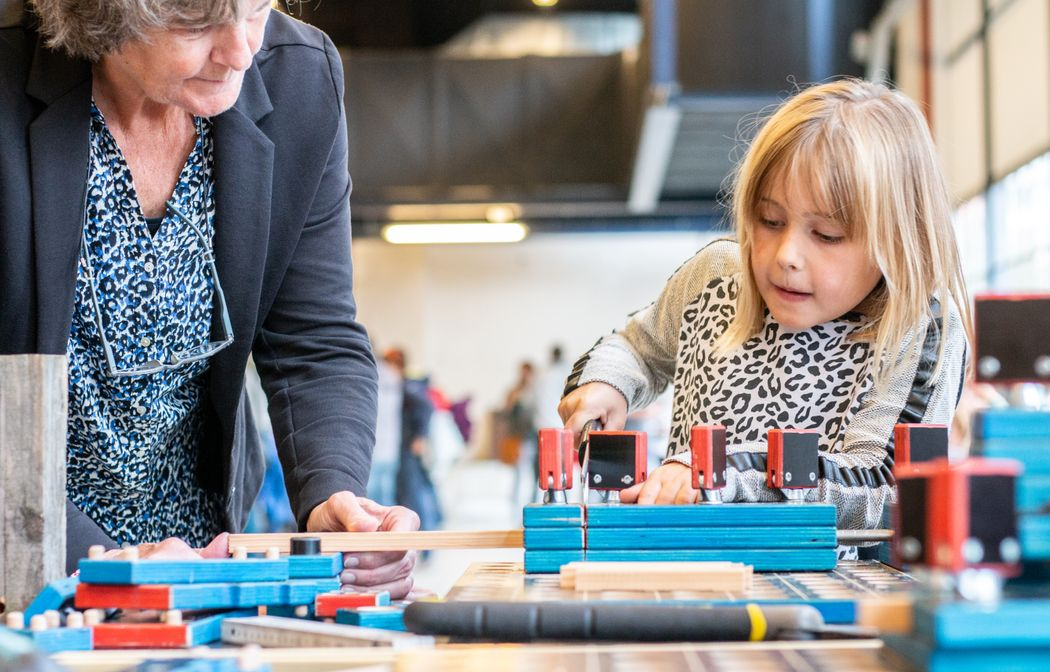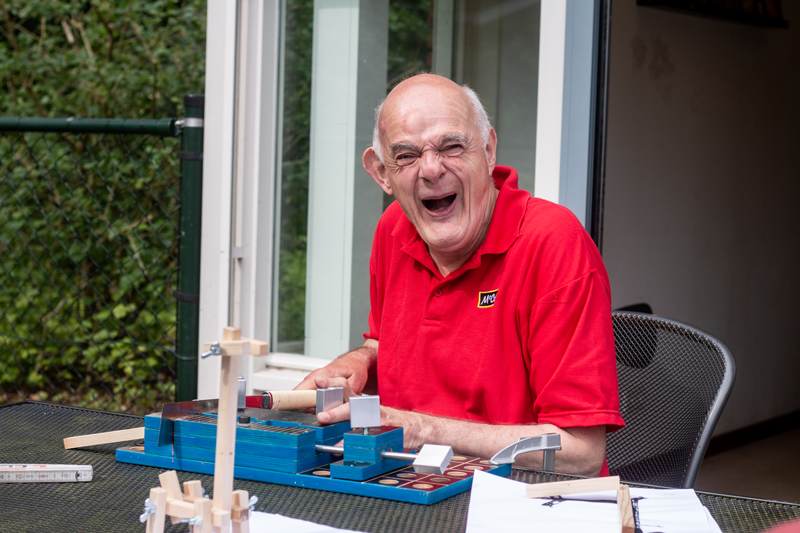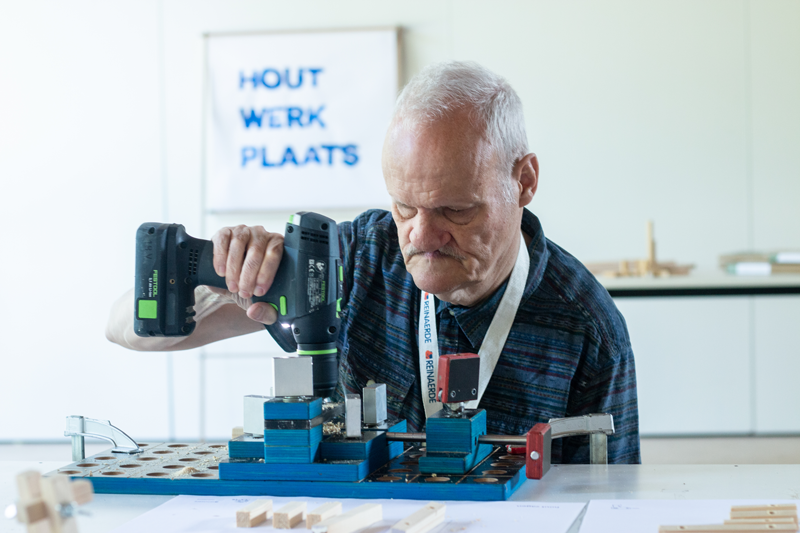from-zero
Concept of engagement in craftwork
Concept of engagement in craftwork
From-zero intends to educate and empower through engagement and fulfillment. Tools, workshops, and products invite differently skilled people into various steps of making in order to engage with and enjoy craftwork. At the core of the shop are templates developed as tools to extend capacities in craftwork.

A modular system to create templates for sawing and drilling to guide people with different skill levels in woodworking workshops.




Why
Automation, digitisation and efficiency alienate people from manufacturing processes, product value and the joy of work. Re-humanising production systems by designing open and inclusive processes of making is of utmost importance.


How
In weekly workshops in a home for the elderly participants engaged in making a construction system using the guiding templates. The group activity revealed the participants’ strong desire to be useful in society. The approach can be adapted to different professions outside woodwork, challenging capitalistic ideas and preventing the loss of sensory working activities and the exclusion of people.
Background
Automatization, digitalization, efficiency, accuracy and the deluded urgency of economic growth are shifting the vocational world and the notion of work and product value, at the cost of joy and the sense of work. Re-humanizing systems of production by questioning human engagement is of utmost importance. Processes of making need to be designed with the goal of openness and inclusion. Project “Making Things is Seeing Things” stresses how to provide tools and projects which guide openness, enabling participants and leaders with capacities to engage; to extend and re-discover capabilities in woodworking. In this case, elderly participants actively engage in a process of constructing with basics, such as marking, sawing, and drilling. These skills can be practiced with guiding templates, enabling the development of a group project which brings value to their surroundings. A weekly activity with the group of participants allowed for a better understanding of their capacities and a pathway of experimentation in tool development.
Unexpectedly, the participants' strong desire to be useful in their society was also revealed. Utilizing the concepts of openness and engagement presented the importance of creating a construction system which is scalable and transferrable to various dimensions, to continue the idea of openness and engagement also into the outcome and use. This exercise proves the crucial importance of making engagement possible in order to see unexpected values and understand material, processes and human coexistence. We have developed a system of making, open to adapt conscious consumption and challenge the global status quo, using local resources in terms of material, people and companies. This approach can be adapted in different professions outside woodwork, challenging capitalistic ideas and prevent the loss of sensual working activities and the exclusion of people. Page in progress
Unexpectedly, the participants' strong desire to be useful in their society was also revealed. Utilizing the concepts of openness and engagement presented the importance of creating a construction system which is scalable and transferrable to various dimensions, to continue the idea of openness and engagement also into the outcome and use. This exercise proves the crucial importance of making engagement possible in order to see unexpected values and understand material, processes and human coexistence. We have developed a system of making, open to adapt conscious consumption and challenge the global status quo, using local resources in terms of material, people and companies. This approach can be adapted in different professions outside woodwork, challenging capitalistic ideas and prevent the loss of sensual working activities and the exclusion of people. Page in progress
“People are seen not only as carriers of needs but also of capabilities. Thus, they are not only part of the problem they find themselves facing but also actors in their solution.”
Ezio Manzini